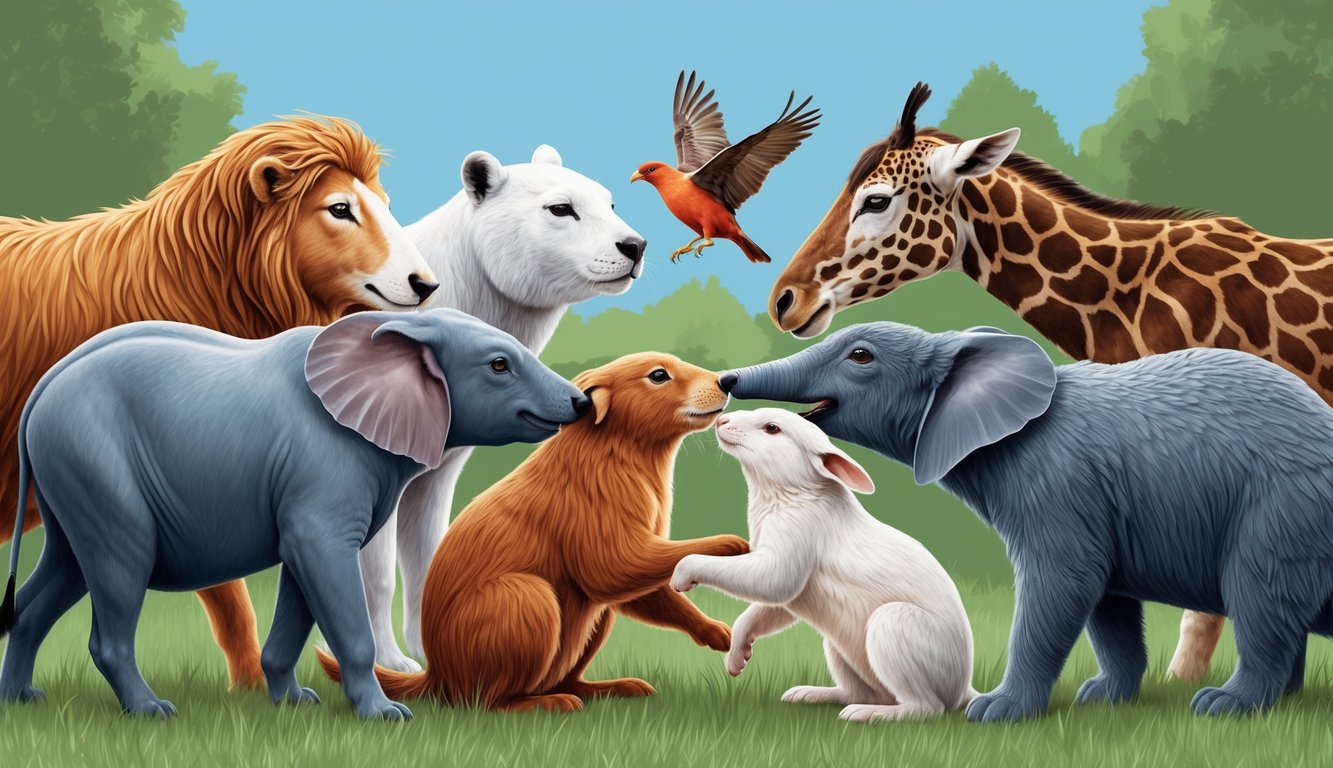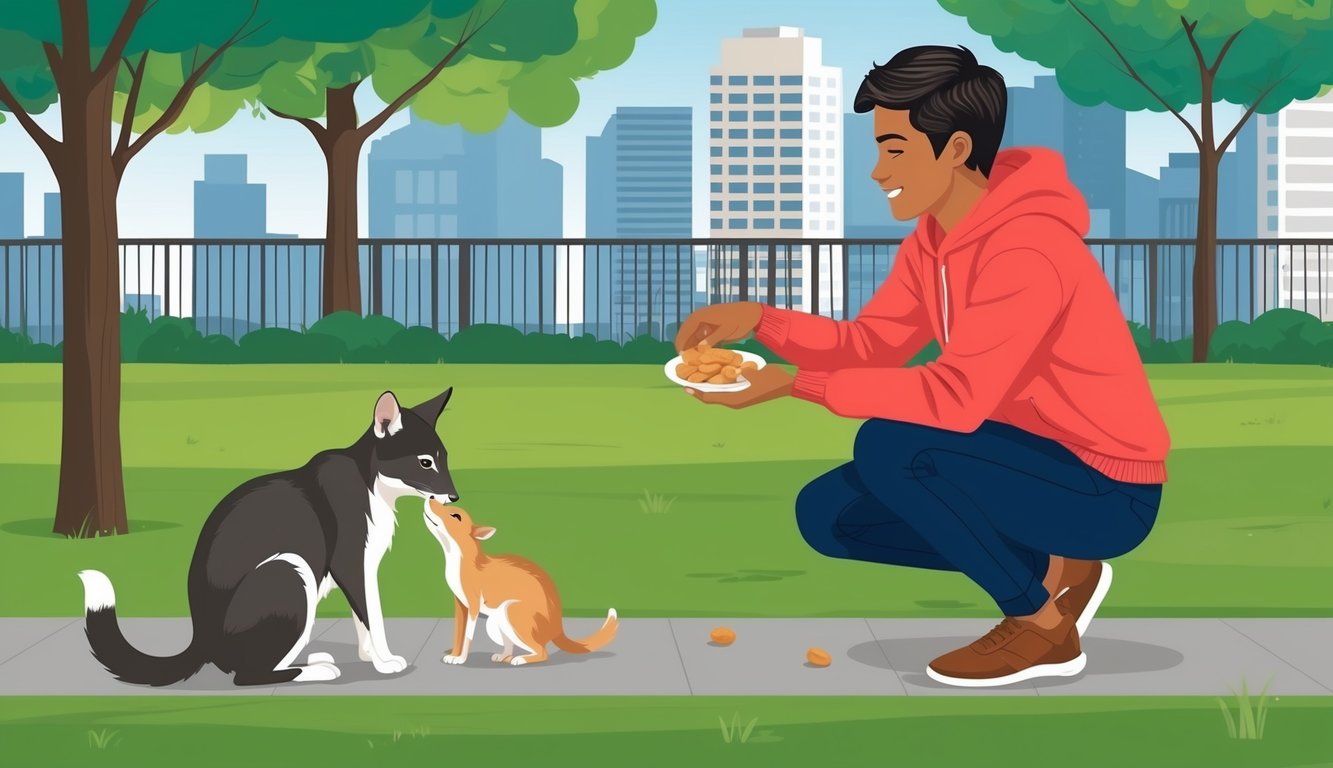Align Your Life with Your True North
The Power Quadrant System decodes your natural talents and pinpoints the career, timing and relationships that let you earn more, love deeper, and wake up eager for the day.
- Uncover your #1 high-income strength
- Draw in partners who raise your energy
- Work when your body’s clock is in “flow”
Altruism is a powerful force that can transform lives and create positive change in the world.
By putting others’ needs before our own, we tap into a wellspring of compassion and kindness that enriches both the giver and receiver.
This collection of quotes aims to inspire you to embrace selflessness in your daily life.
These thoughtful words from influential figures throughout history will encourage you to look beyond yourself and make a difference in your community. Whether through small acts of kindness or grand gestures of generosity, altruism has the potential to create ripple effects that spread far and wide.
Let these quotes serve as a reminder of the impact you can have when you choose to act with empathy and care for others.
1) “The best way to find yourself is to lose yourself in the service of others.” – Mahatma Gandhi
This powerful quote from Gandhi encapsulates the essence of selflessness.
It suggests that by focusing on helping others, you can discover your true purpose and identity.
By dedicating yourself to the service of others, you not only bring positive change to their lives but also experience personal growth and fulfillment.
This idea aligns with many freedom quotes for inspiration, which emphasize that true liberation comes from acts of kindness and compassion.
When you shift your focus from personal gain to the well-being of others, you cultivate a deeper sense of connection and meaning in life.
When you dedicate yourself to serving others, you shift your focus away from your own concerns.
Decode Your Personal Success Blueprint
Power Quadrant System shows you the exact career, relationships, and daily rhythm that match your natural DNA—so you earn more, work happier, and connect deeper.
- Pinpoint your #1 money-making talent
- Erase conflict & attract ideal partners
- Multiply productivity with perfect timing
This shift can lead to personal growth and a deeper understanding of your values and strengths.
Engaging in acts of service can provide a sense of fulfillment and purpose.
You may find that your own problems seem less significant when you’re working to improve the lives of others.
Serving others can also help you develop empathy and compassion.
These qualities not only benefit those you help but can also enrich your own life and relationships.
By losing yourself in service, you might discover hidden talents or passions.
You could uncover new interests or skills that you never knew you had.
Remember, finding yourself through service doesn’t mean neglecting your own needs.
It’s about striking a balance between self-care and caring for others.
Tap Into Your Built-In Success GPS
The Power Quadrant System deciphers your genetic blueprint so you can lock onto the career, income and relationships that feel effortless—and wildly rewarding.
- Zero in on your natural high-earning genius
- Sync with partners who boost your vibe
- Wake up driven, finish days fulfilled
2) “No act of kindness, no matter how small, is ever wasted.” – Aesop
This timeless quote from Aesop reminds you that every kind gesture matters.
You might think your small acts of kindness don’t make a difference, but they do.
Even the tiniest acts of goodwill can have a ripple effect.
A smile, a compliment, or holding the door open for someone can brighten their day in ways you can’t imagine.
Your kindness might inspire others to pay it forward.
That simple act could start a chain reaction of positivity, spreading far beyond your initial intention.
Remember, you never know what someone else is going through.
Your small gesture might be exactly what they needed at that moment.
It could give them hope or remind them that there’s still good in the world.
Don’t underestimate the power of your kindness.
Every compassionate action, no matter how insignificant it may seem, contributes to making the world a better place.
3) “Real generosity is doing something nice for someone who will never find out.” – Frank A. Clark
This quote captures the essence of true altruism.
It challenges you to think about your motivations for giving and helping others.
When you do something kind without expecting recognition or reward, you’re practicing genuine generosity.
It’s about the pure act of giving itself, not the acknowledgment you might receive.
Consider the times you’ve helped someone anonymously.
Maybe you’ve left a generous tip for a struggling server or paid for a stranger’s groceries without them knowing.
These moments embody Clark’s idea of real generosity.
This approach to kindness can be incredibly fulfilling.
You’re not seeking praise or gratitude; you’re simply doing good for its own sake.
It’s a selfless way to make the world a little better, one small act at a time.
Next time you have the chance to help someone, try doing it without them ever finding out.
You might be surprised at how good it feels to give without expecting anything in return.
4) “You have not lived today until you have done something for someone who can never repay you.” – John Bunyan
This powerful quote from John Bunyan challenges you to make a difference in someone’s life every day.
It encourages you to look beyond self-interest and focus on helping others without expecting anything in return.
Think about the last time you did something kind for a stranger or someone in need.
How did it make you feel? Bunyan’s words remind you that true fulfillment comes from selfless acts of kindness.
Consider seeking out opportunities to help those who can’t repay you.
This could be volunteering at a homeless shelter, donating to a charity, or simply offering a helping hand to an elderly neighbor.
Remember, the value of your actions isn’t measured by what you receive in return.
Instead, it’s about the positive impact you can have on others’ lives.
By living out this quote, you’ll find a deeper sense of purpose and satisfaction in your daily life.
So, ask yourself: What can you do today for someone who can never repay you? Your actions, no matter how small, could make a world of difference to someone in need.
5) “The greatest joy in all of living is the joy that comes from freely giving.” – Gordon B. Hinckley
Gordon B. Hinckley’s quote highlights the profound happiness that comes from selfless giving.
You might find that when you give without expecting anything in return, it brings a unique sense of fulfillment.
This joy often surpasses other pleasures in life.
It’s not about material possessions or personal achievements.
Instead, it’s about the warmth you feel when you help others.
Consider how you feel when you volunteer your time, donate to a cause, or simply offer a kind word to someone in need.
That feeling of making a positive difference can be incredibly rewarding.
Hinckley’s words encourage you to embrace generosity as a path to genuine happiness.
By freely giving, you’re not just benefiting others – you’re enriching your own life experience.
Next time you have the opportunity to give, remember this quote.
You might discover that the act of giving itself brings you more joy than you ever expected.
6) “We make a living by what we get. We make a life by what we give.” – Winston Churchill
This powerful quote from Winston Churchill highlights the importance of giving in your life.
It suggests that while earning money is necessary, true fulfillment comes from what you contribute to others.
Churchill’s words encourage you to look beyond material success.
They remind you that your impact on the world and those around you is what truly defines your life’s worth.
Consider how you can incorporate more giving into your daily routine.
This doesn’t always mean monetary donations.
You can give your time, skills, or simply a kind word to someone in need.
By shifting your focus from getting to giving, you may find greater purpose and satisfaction.
Think about ways you can serve your community or support causes you care about.
Remember, even small acts of generosity can make a big difference.
As you go through your day, look for opportunities to give.
You might be surprised at how enriching it can be for both you and those you help.
7) “The best cure for weariness is the challenge of helping someone who is even more tired.” – Gordon B. Hinckley
Feeling exhausted? Gordon B. Hinckley offers a surprising remedy.
Instead of focusing on your own fatigue, try helping someone else who’s even more tired than you are.
This quote challenges you to shift your perspective.
When you’re weary, it’s easy to become self-absorbed.
But reaching out to others can be surprisingly energizing.
Think about a time you’ve helped someone in need.
Didn’t it give you a boost? There’s something invigorating about forgetting your own troubles and making a difference for someone else.
Hinckley’s wisdom taps into a powerful truth.
Serving others often benefits the giver as much as the receiver.
It can pull you out of a slump and renew your sense of purpose.
Next time you’re feeling drained, look around.
Is there someone who could use your help? A small act of kindness might just be the pick-me-up you both need.
8) “A bone to the dog is not charity. Charity is the bone shared with the dog, when you are just as hungry as the dog.” – Jack London
This powerful quote from Jack London challenges your perception of true charity.
It’s not just about giving what you don’t need, but sharing even when you’re in need yourself.
London suggests that real generosity comes from sacrificing your own comfort for others.
Imagine you’re starving, with only one piece of food left.
Giving it to someone equally hungry – that’s genuine charity.
This quote encourages you to look beyond surface-level acts of kindness.
It’s easy to donate things you no longer want or need.
But can you give when it hurts?
Consider how you might apply this wisdom in your daily life.
Could you share your lunch with a coworker who forgot theirs? Or offer your seat on a crowded bus to someone who needs it more?
London’s words remind you that true altruism often requires personal sacrifice.
It’s not always comfortable, but it’s deeply meaningful.
By giving even when you’re in need, you demonstrate the highest form of compassion.
9) “Altruism is the greatest art of love.” – Gary Zukav
Gary Zukav’s quote beautifully captures the essence of selfless love.
When you practice altruism, you’re expressing love in its purest form.
Think about the last time you helped someone without expecting anything in return.
That warm feeling you experienced? It’s the art of love in action.
Altruism goes beyond simple kindness.
It’s about putting others’ needs before your own, sometimes at great personal cost.
This selfless act is a powerful expression of love.
You might wonder how to cultivate this art.
Start small.
Hold the door for someone, offer a sincere compliment, or volunteer your time.
Each act of kindness is a brushstroke in your masterpiece of love.
Remember, altruism isn’t always grand gestures.
It’s often found in everyday actions.
A listening ear, a shoulder to cry on, or a helping hand can make a world of difference to someone in need.
As you practice altruism, you’ll find it becomes second nature.
Your capacity for love grows, and you’ll see the positive impact you have on those around you.
10) “Service to others is the rent you pay for your room here on earth.” – Muhammad Ali
This powerful quote from boxing legend Muhammad Ali highlights the importance of giving back to society.
It suggests that your place in the world comes with a responsibility to help others.
Ali implies that it’s not optional – it’s something you owe.
Just as you pay rent for your living space, you should contribute to the world around you.
The metaphor of Earth as a “room” emphasizes that we’re all sharing this planet.
Your actions impact others, so it’s crucial to make those impacts positive.
This quote encourages you to view service not as a burden, but as a natural part of existence.
It prompts you to ask yourself how you’re contributing to the world around you.
Consider ways you can “pay your rent” through acts of kindness, volunteering, or using your skills to benefit others.
Remember, even small acts of service can make a big difference in someone’s life.
11) “The simplest acts of kindness are by far more powerful than a thousand heads bowing in prayer.” – Mahatma Gandhi
Gandhi’s words remind you that actions speak louder than words.
When you perform simple acts of kindness, you create a ripple effect that can touch many lives.
Think about holding the door for someone or offering a smile to a stranger.
These small gestures might seem insignificant, but they can brighten someone’s day and inspire them to pay it forward.
By focusing on tangible acts of compassion, you make a real difference in the world around you.
It’s not about grand gestures or elaborate rituals, but rather the everyday kindnesses that truly matter.
You have the power to create positive change through your actions.
Whether it’s helping a neighbor or volunteering in your community, these simple acts can have a profound impact.
Remember, your kindness has the potential to transform lives and foster connections between people.
So, don’t underestimate the power of your small, thoughtful actions.
They can indeed be more powerful than a thousand prayers.
12) “Love and kindness are never wasted. They always make a difference.” – Barbara De Angelis
When you show love and kindness, you’re creating ripples of positivity that extend far beyond the immediate moment.
Your acts of compassion touch not only the recipient but also yourself as the giver.
Barbara De Angelis reminds you that these gestures are never in vain.
Even the smallest act of kindness can brighten someone’s day or lift their spirits when they need it most.
You might not always see the impact of your actions, but rest assured they matter.
A kind word or a thoughtful deed can stay with a person long after the moment has passed.
By embracing love and kindness in your daily life, you’re contributing to a more compassionate world.
These actions have a way of inspiring others, potentially creating a chain reaction of goodwill.
Remember, being kind doesn’t require grand gestures.
Simple acts like a smile, a helping hand, or a listening ear can make a significant difference in someone’s life.
13) “True charity is the desire to be useful to others with no thought of recompense.” – Emanuel Swedenborg
Emanuel Swedenborg’s quote beautifully captures the essence of selfless giving.
When you engage in true charity, your focus shifts from personal gain to the genuine desire to help others.
This perspective challenges you to reconsider your motivations for giving.
Are you helping because it makes you feel good, or because someone truly needs assistance?
True charity goes beyond mere financial donations.
It’s about offering your time, skills, and energy to make a positive impact on others’ lives.
You give without expecting anything in return.
This mindset can transform your approach to volunteering and community service.
Instead of seeking recognition or rewards, you find fulfillment in the act of being useful to others.
Swedenborg’s words remind you that authentic generosity comes from a place of sincerity and compassion.
By embracing this philosophy, you can cultivate a deeper sense of connection with those around you.
14) “I slept and I dreamt that life was joy. I awoke and saw that life was service. I acted and behold, service was joy.” – Rabindranath Tagore
This quote from Rabindranath Tagore beautifully captures the transformative power of service.
You might initially view life as purely about personal joy and pleasure.
But as you awaken to the world around you, you realize there’s more to existence than self-gratification.
When you engage in service to others, something magical happens.
You discover that helping people brings its own unique form of happiness.
It’s a deeper, more fulfilling joy that comes from making a positive impact on someone else’s life.
Tagore’s words remind you that true contentment often lies beyond yourself.
By shifting your focus outward and actively serving others, you can find a sense of purpose and satisfaction.
This quote encourages you to look for opportunities to be of service in your daily life.
Whether it’s volunteering, helping a neighbor, or simply being kind to strangers, acts of service can bring unexpected joy.
You might find that the more you give, the more fulfilled you feel.
Tagore’s insight invites you to experience this profound connection between service and joy for yourself.
15) “You can always give something, even if it is only kindness.” – Anne Frank
This quote from Anne Frank reminds you that generosity doesn’t always require material gifts.
Even in the toughest times, you can offer kindness to others.
Anne Frank penned these words while hiding from Nazi persecution during World War II.
Despite her dire circumstances, she recognized the power of small acts of compassion.
You might feel like you don’t have much to give sometimes.
But a simple smile, a listening ear, or a word of encouragement can make a big difference in someone’s day.
Kindness costs nothing, yet it’s invaluable.
You can brighten someone’s mood, ease their stress, or help them feel less alone with a thoughtful gesture.
By embracing this mindset, you cultivate a spirit of giving in your daily life.
You’ll find opportunities to spread positivity wherever you go.
Remember, even the smallest acts of kindness ripple outward.
Your compassion can inspire others to pay it forward, creating a chain reaction of goodwill.
16) “If you want others to be happy, practice compassion. If you want to be happy, practice compassion.” – Dalai Lama
This powerful quote from the Dalai Lama emphasizes the importance of compassion in our lives.
It suggests that by showing kindness and empathy towards others, you can bring happiness not only to them but also to yourself.
Practicing compassion means putting yourself in someone else’s shoes and trying to understand their feelings and experiences.
It’s about treating others with kindness, even when it’s challenging.
The Dalai Lama’s words remind you that happiness isn’t just about focusing on your own needs.
By extending compassion to others, you create a positive ripple effect that can transform relationships and communities.
This quote encourages you to look beyond your own concerns and consider how your actions affect those around you.
It suggests that true fulfillment comes from caring for others and contributing to their well-being.
By cultivating compassion, you can create a more harmonious environment for yourself and those around you.
It’s a simple yet profound way to make the world a little bit better, one interaction at a time.
17) “The most truly generous persons are those who give silently without hope of praise or reward.” – Carol Ryrie Brink
This quote by Carol Ryrie Brink captures the essence of true generosity.
It highlights the idea that genuine altruism comes from within, without seeking external validation or recognition.
You might find that the most impactful acts of kindness often happen behind the scenes.
These are the moments when you give without expecting anything in return, not even a simple “thank you.”
Consider the anonymous donors who support causes they believe in.
Or think about the friend who helps you move without making a fuss.
These people embody the spirit of Brink’s words.
When you give silently, you focus on the act itself rather than the potential benefits.
This approach allows you to experience the pure joy of helping others.
Remember, true generosity isn’t about grand gestures or public displays.
It’s about the small, everyday acts of kindness that you perform simply because it’s the right thing to do.
By embracing this mindset, you can cultivate a deeper sense of compassion and make a meaningful difference in the world around you.
18) “There is no exercise better for the heart than reaching down and lifting people up.” – John Holmes
This quote highlights the profound impact of helping others on your own well-being.
When you extend a hand to those in need, you’re not just benefiting them—you’re also strengthening your own heart.
Think of it as emotional cardio.
Each time you lift someone up, you’re giving your heart a workout in compassion and kindness.
It’s a form of exercise that doesn’t require a gym membership or special equipment.
You might find that the more you practice this “heart exercise,” the easier it becomes.
Like any muscle, your capacity for empathy and generosity can grow with use.
The beauty of this quote lies in its simplicity.
You don’t need grand gestures to make a difference.
Small acts of kindness, a helping hand, or a word of encouragement can be powerful ways to lift others up.
Remember, every time you reach down to help someone, you’re not just changing their day—you’re nurturing your own heart and soul.
It’s a win-win situation that can leave you feeling fulfilled and connected to those around you.
19) “Every man must decide whether he will walk in the light of creative altruism or in the darkness of destructive selfishness.” – Martin Luther King Jr.
This powerful quote from Dr. King challenges you to make a conscious choice about how you’ll live your life.
Will you choose to be selfless and help others, or focus only on your own interests?
Creative altruism means using your talents and abilities to benefit those around you.
It’s about finding innovative ways to make a positive impact on your community and the world at large.
On the flip side, destructive selfishness leads to a narrow-minded existence focused solely on personal gain.
This path often comes at the expense of others and can leave you feeling isolated and unfulfilled.
Dr. King’s words remind you that this decision is yours to make every day.
Each time you interact with others, you have the opportunity to choose altruism over selfishness.
By consistently choosing to “walk in the light,” you can cultivate a more compassionate and connected way of living.
This approach not only benefits those around you but can also bring more meaning and joy to your own life.
Understanding Altruism
Altruism is a complex human behavior that drives individuals to help others without expecting anything in return.
It plays a crucial role in fostering compassion and building stronger communities.
The Science Behind Altruistic Behavior
Your brain is wired for kindness.
When you engage in altruistic acts, your body releases feel-good chemicals like oxytocin and dopamine.
These neurotransmitters create positive emotions and reinforce helping behaviors.
Studies have shown that altruism activates the reward centers in your brain, similar to when you eat delicious food or receive a gift.
This neurological response suggests that humans may be naturally inclined towards selflessness.
Evolutionary biologists argue that altruism has survival benefits.
By helping others, you increase the chances of reciprocal aid when you’re in need.
This cooperative behavior strengthens social bonds and improves group survival rates.
Cultural Perspectives on Altruism
Different cultures view and practice altruism in unique ways.
In collectivist societies, selflessness is often seen as a core value that maintains social harmony.
You’re expected to prioritize the needs of your family and community over individual desires.
Western cultures, while more individualistic, still value altruism.
You might encounter it through charitable donations, volunteer work, or random acts of kindness.
Many religious and philosophical traditions emphasize the importance of helping others.
Some cultures have specific concepts related to altruism.
For example, the African philosophy of Ubuntu stresses the interconnectedness of humanity.
It suggests that your own well-being is tied to the well-being of others.
In Japan, the concept of “omotenashi” embodies selfless hospitality.
You’re encouraged to anticipate and fulfill others’ needs without expectation of reward.
The Impact of Altruism
Altruistic acts create ripple effects that benefit both individuals and society.
Selfless giving improves mental health and strengthens social bonds in meaningful ways.
Altruism and Mental Well-Being
Helping others boosts your mood and self-esteem.
Studies show that volunteering and donating reduce stress and depression.
You’ll likely feel more satisfied with life when you give your time or resources to those in need.
Acts of kindness trigger the release of oxytocin and serotonin in your brain.
These “feel-good” chemicals promote happiness and combat anxiety.
Regular altruism can even lead to better physical health, including lower blood pressure and a stronger immune system.
Focusing on others’ needs also provides perspective on your own challenges.
You may find your problems seem less daunting after assisting someone facing greater hardships.
Social Benefits of Altruistic Acts
Your generous actions inspire others to pay it forward.
This creates a positive cycle of kindness in communities.
Altruism builds trust and cooperation between people from different backgrounds.
Volunteering connects you with like-minded individuals, expanding your social network.
These connections often lead to new friendships and professional opportunities.
In times of crisis, altruistic behavior strengthens societal resilience.
Neighbors helping neighbors during natural disasters exemplifies this effect.
Communities with higher rates of volunteerism tend to recover faster from setbacks.
Charitable giving and service work address societal issues like poverty and inequality.
Your efforts, combined with others, can drive meaningful change on local and global scales.










